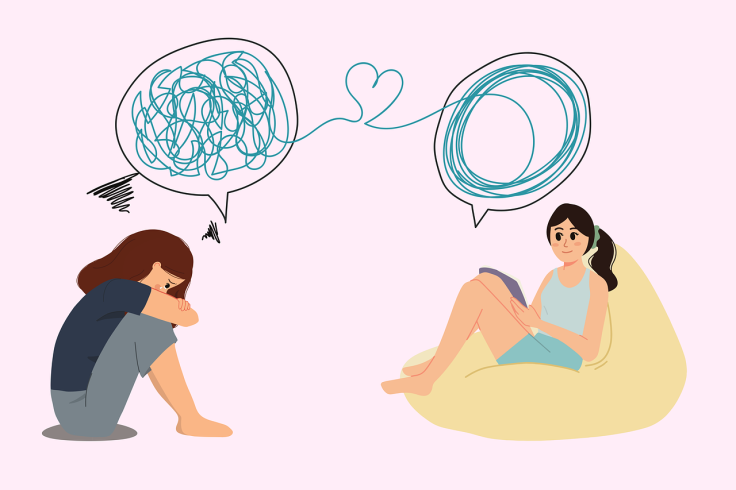World Mental Health Day: Significance And Important Facts About Mental Well-being
On World Mental Health Day, observed every October 10, we highlight an important, yet often overlooked, aspect of a person's overall well-being.
Mental health is a critical issue no matter what part of the world you are in. Observed since 2013, World Mental Health Day aims to raise awareness about mental health and increase support for those struggling with their mental health.
The theme for this year is "Make mental health & well-being for all a global priority," stressing the importance of highlighting the issue in all corners of the globe. This is especially relevant given the global mental health crisis resulting from the COVID-19 pandemic.
"Many aspects of mental health have been challenged, and already before the pandemic in 2019 an estimated one in eight people globally were living with a mental disorder," said the World Health Organization (WHO). "We envision a world in which mental health is valued, promoted and protected; where everyone has an equal opportunity to enjoy mental health and to exercise their human rights; and where everyone can access the mental health care they need."
On this day, people all over the world may participate in local events around the campaign. One simple way to do this would be to spread the word on social media using #WorldMentalHealthDay. But the hope, of course, is to highlight the importance of mental health every day of the year, not just on World Mental Health Day.
Let's have a look at some important mental health facts to gain a better understanding of the scope of the issue. (Courtesy: WHO, U.S. Department of Health & Human Services, the CDC, and World Bank)
- Almost one billion people are estimated to be living with a mental disorder. Mental, neurological and substance-use disorders actually account for 10% of the global burden of disease, according to data from the WHO.
- People with severe mental disorders tend to die 10 to 20 years earlier than the general population.
- Hundreds of thousands of people die of suicide each year, accounting for one in 100 deaths globally. In fact, it is said to be the "fourth leading cause of death" among 15 to 29-year-olds.
- Mental illnesses are also common in the U.S., where one in five Americans are estimated to experience a mental illness "in any given year."
- Despite these staggering numbers, however, countries tend to devote less than 2% of their health budgets to mental health concerns. And in lower-income countries, over 75% of people with a mental disorder don't get the treatment they need.
- Stigma continues to be one of the barriers to mental health as myths continue to hound the issues surrounding it. For instance, contrary to the myth that mental health problems are a sign of weakness or character flaws, there are actually a variety of factors that contribute to mental health, from genetics and injury to traumatic life experiences and family history.
- Others also believe that people with mental health problems tend to be "violent and unpredictable." The truth, however, is that "the vast majority" of people struggling with mental health issues are "no more likely to be violent than anyone else."
- Mental health is also important for overall health as it also impacts our physical health. For instance, according to the CDC, struggling with depression may also lead to physical issues, such as an increased risk for diabetes, stroke and heart disease.
- Even children can experience mental health issues. In fact, the first signs of "half of all mental health disorders" are present before the age of 14. And according to the WHO, some 1 in 7 adolescents in the world have a mental disorder.
- Mental health problems are also costly, with depression and anxiety costing the global economy US $1 trillion each year in productivity.
All this being said, the good news is that it is possible to recover from mental health problems. The important thing is to take the first step toward reaching out for help.
"Whilst the pandemic has, and continues to, take its toll on our mental health, the ability to reconnect through World Mental Health Day 2022 will provide us with an opportunity to re-kindle our efforts to protect and improve mental health," said the WHO.
If you have thoughts of suicide, confidential help is available for free at the National Suicide Prevention Lifeline. Call 1-800-273-8255. The line is available 24 hours, every day.

© Copyright IBTimes 2024. All rights reserved.






















